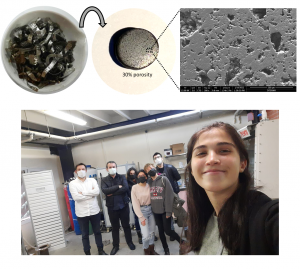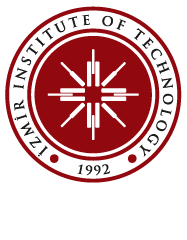Development of highly porous load-bearing implant materials using recycled Ti6Al4V scraps

Within the scope of the MSE 451 Materials Design course, undergraduate students of our department, İremgül Akkaya, Ömer Yıldız, and Merve Yurduseven, produced highly porous orthopaedic implant materials by recycling Ti6Al4V alloy scraps in our department labs.
Due to the threat of climate change and increasing environmental pollution, the recycling processes for waste materials or scraps has been intensively studied in recent years. Ti6Al4V alloy is one of the most common metallic materials in biomedical applications due to its superior mechanical properties, biocompatibility, and excellent corrosion resistance. In addition, the use of highly porous titanium alloys in bone implants promotes bone integration.
Within the scope of the project, highly porous (30% and 50% by volume) materials were produced from industrial Ti6Al4V alloy scraps by applying an innovative, powder metallurgy based production method. The characterization studies revealed that the applied processing method can be successful in obtaining pieces with high porosity. In the spring semester, the students will optimize the processing technique and will explore the mechanical and electrochemical properties of the optimized materials as a part of their graduation projects.
